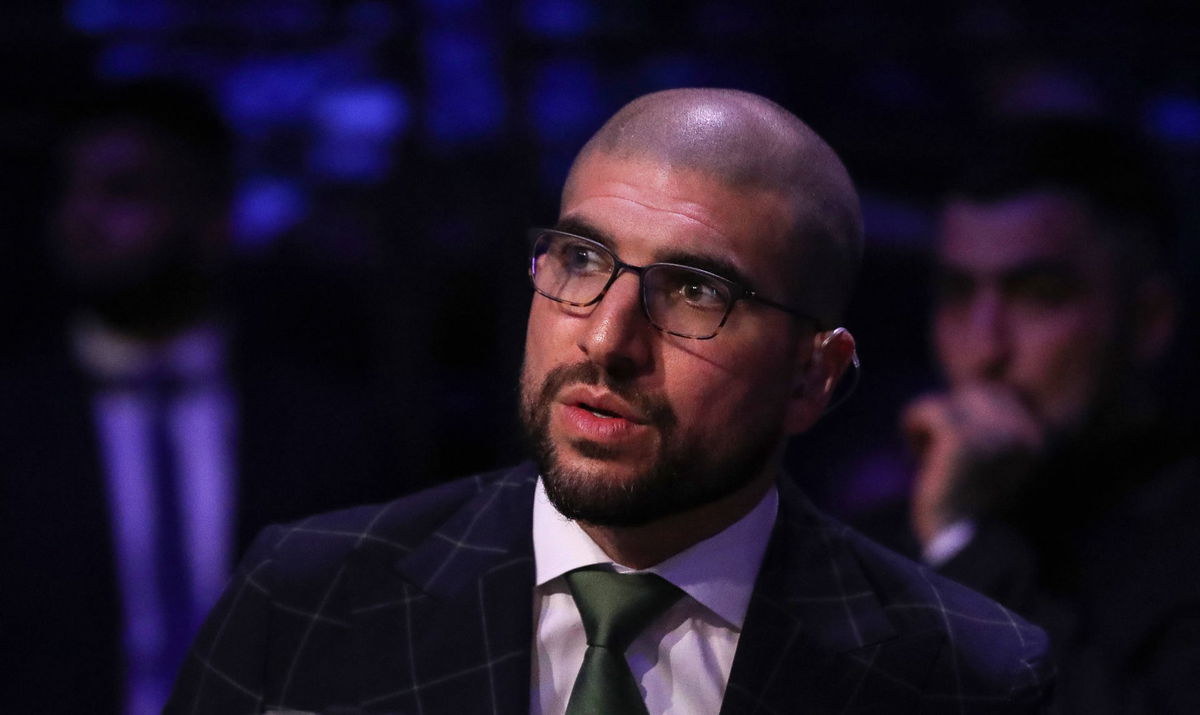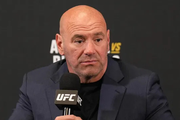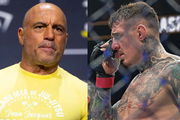
Imago
Gary Cully vs Jose Felix Jr, 3 Arena, Dublin 20/5/2023 Ariel Helwani Ariel Helwani 20/5/2023 PUBLICATIONxNOTxINxUKxIRLxFRAxNZL Copyright: x INPHO/GaryxCarrx JACK0276

Imago
Gary Cully vs Jose Felix Jr, 3 Arena, Dublin 20/5/2023 Ariel Helwani Ariel Helwani 20/5/2023 PUBLICATIONxNOTxINxUKxIRLxFRAxNZL Copyright: x INPHO/GaryxCarrx JACK0276
Sports journalism is a dynamic landscape brimming with competition, collaborations, and comparisons. Professionals operating in this terrain always find themselves in the limelight. This reality comes alive dramatically in the domain of UFC reporting. This complex interplay of the sporting saga is captured in Dave Schmulenson’s interview on the ‘Real Eyes Recognize Podcast.’ Known more commonly as ‘The Schmo’, Schmulenson gave an intriguing account of his tenuous relationship with fellow sports reporter Ariel Helwani.
Watch What’s Trending Now!
The episode brought to light the intricate nuances and underlying rifts tucked beneath the surface of sports reporting. It exposed the cold undertones lurking behind the heated exchanges in press rooms and the frosty vibes beneath the animated match reportage. As Schmulenson recounted his encounters with Helwani, the narrative echoed tense disagreements and unresolved differences that remain etched in the collective memory of sports journalism.
ADVERTISEMENT
Questioning Ariel Helwani: Addressing ‘Agenda Journalism’
Schmulenson’s critique of Helwani’s approach only seemed to have intensified following an initial icy encounter that ‘The Schmo’ referenced earlier in the interview. On the podcast, he highlighted his views on what he considers ‘Agenda Journalism’. He said, “What I feel like with his style, there’s an agenda. Like there’s obviously something he wants to get out of it. He needs to make himself look good and sometimes that falls at the expense of the athletes. So that’s where I feel a disconnect with what he does“. In relation, Schmulenson also addressed ‘Sweet Dreams’ Jamahal Hill after Helwani reportedly attempted to instigate tension between the UFC Champ and Dana White. He said, “I could understand exactly how Jamahal feels and relate to what Jamahal feels about how he’ll say something good, but take these dirty shots at someone. ”
View this post on Instagram
The unraveled threads from their past also reveal a bitter narrative that has molded their professional relationship ever since. Beyond the recounting of the discord, the narrative thereafter ventured into examining Helwani’s professional ethics. The talk dissected his interview style and journalistic method. Schmulenson’s critique of what he referred to as Helwani’s ‘agenda’ offers food for thought on the intense pressures, questionable tactics, and professional rivalries nurtured in the realm of sports journalism.
ADVERTISEMENT
Recall of a frosty first encounter
Schmulenson adopted a candid demeanor while discussing his sour introduction with Helwani back in 2018. The Schmo’ here too, held nothing back. “He big-timed me when I tried to introduce myself to him in 2018 and gave me a fake e-mail address”, he recalled. What started off as Helwani’s indifference towards a fellow journalist ended up freezing their relationship forever. He continued, “And we’ve just had kind of just never been on the right footing. Called him out to a charity grappling match, raise money, charity, and turn into charity basketball or whatever, but he won’t do anything that doesn’t help himself first is kind of what I noticed”.
ADVERTISEMENT
Top Stories
Brian Ortega Gives Classy Response to UFC Fans Rubbing Alex Pereira and Tracy Cortez’ Relationship in His Face

Who Is Arman Tsarukyan’s Father? Nairi Tsarukyan’s Net Worth, Profession & Businesses

After Tracy Cortez Breakup, Brian Ortega Shares Emotional Confession on His Wife and Kids

Dana White Urged to Get Out of His Bubble After RIZIN’s Success

Joe Rogan Raises Alarming Doubt Over Tom Aspinall’s UFC Career After Eye Injury: “He’s Fu**ed Up”

To Schmulenson, the initial encounter served as an unforgettable ice-breaker, setting a notably tense undertone for their future interactions. Despite his love for everyone in sports, Schmulenson confessed, “I don’t like him (Ariel Helwani)”. The revelations brought forth by ‘The Schmo’ paint an intricate picture of the world of sports journalism; especially that of UFC. As the implications of the critique continue to unfold, Schmulenson’s narrative underlines the pressing demands. The layered dynamics of sports reporting keep the industry, the fraternity, and the readers keenly engaged.
Watch This Story: Gruesome Injury That Forced Kelvin Gastelum Out of His Fight Against Shavkat Rakhmonov
ADVERTISEMENT
ADVERTISEMENT
ADVERTISEMENT
ADVERTISEMENT

